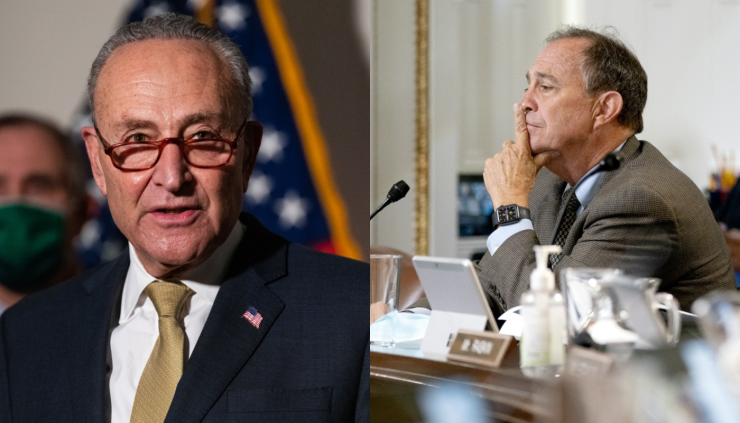WASHINGTON — The decision of pot banking reform’s biggest champion to leave Congress at year-end won’t doom the legislation, but securing its passage this year could become trickier, analysts say.
Rep. Ed Perlmutter, D-Colo., announced last week that he would
And while Perlmutter’s departure is a significant loss for House Democrats, analysts say the years of political groundwork already laid by his office won’t be lost.
“It takes more than one member to get a bill over the finish line, and there are always potholes on the road,” said Isaac Boltansky, managing director at BTIG. “But my bet is that Perlmutter leaves Congress later this year on a high with the [Secure and Fair Enforcement] Banking Act being signed into law.”

The path of Perlmutter’s SAFE Banking Act has been bumpy, even though it has secured decent bipartisan support on Capitol Hill in recent years. It was
But the Senate, under both Republican and Democratic leadership, has proven to be an enduring obstacle — the chamber has never voted on the bill. After Democrats took control of the Senate in 2021, Senate Majority Leader Chuck Schumer vowed to
“I think the status of the bill is similar to what it has been for the past few years, which is that it has solid support but needs a window of opportunity or a legislative vehicle to get through the Senate,” said Ian Katz, a managing director at Capital Alpha Partners. “I don't think that has changed.”
If Democrats fail in the coming months to find the votes for comprehensive cannabis legalization, analysts say pot banking reform will likely emerge as a
“By summer, we expect Democratic leaders will realize legalization lacks the required GOP support,” said Jaret Seiberg, an analyst with the Cowen Washington Research Group. “That should provide an opening to bring the SAFE Act to the floor of the House and Senate."
The SAFE Banking Act is a fairly targeted piece of legislation that would prohibit federal bank regulators from penalizing banks working with licensed cannabis businesses. The bill would also tweak anti-money-laundering law to clarify that proceeds from legitimate cannabis businesses would not be considered "unlawful activity."
If full-scale cannabis legalization lacks the votes to become a reality, analysts say some of its provisions could be added to the SAFE Banking Act.
An expanded bill could allow Republicans and Democrats to secure key policy objectives, such as justice-related measures making it easier for nonviolent cannabis offenders to expunge their criminal histories. Lawmakers could also widen the act's scope by allowing capital markets access for the cannabis industry — a change that would make it simpler for cannabis firms to be publicly traded and financed on U.S. stock exchanges.
But some analysts say that political timing will be crucial. If Perlmutter moves too quickly to try and pass his signature bill before the Senate attempts its broader push for cannabis legalization, lawmakers may lose their chance to secure those other reforms via compromise.
“Our concern is that Congress might never get to a compromise if Rep. Perlmutter pushes too soon in 2022 to add the SAFE Act to any bill that Congress is likely to enact,” Seiberg said. “If he were to succeed, then that likely would close the door in this Congress to other cannabis provisions like capital markets access.”
At the same time, however, other analysts say there is also risk for lawmakers in waiting too long; 2022 is an election year, which can often discourage bipartisan compromise.
“The bill always has a decent chance, but it would be hard to say there's a greater than 50% chance it passes this year because you have a Congress where not much gets through, and now we're in an election year,” said Katz.
In a statement provided to American Banker, Perlmutter said his work on the bill “is far from over, and my not running for reelection doesn’t change that.”
“Getting the SAFE Banking Act across the finish line is one of my top priorities, and I am pursuing every possible avenue to get the bill signed into law before the end of the year,” the Colorado representative added.





